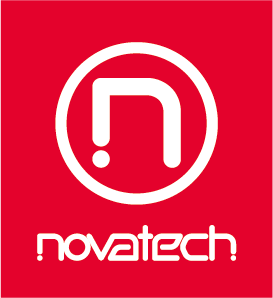How Clear Communication is Key to a Successful IT project in Higher Education
The university sector has never been more competitive. On so many levels, higher education now resembles a marketplace, with UK universities competing for students, staff, research funding, league table positions and Government TEF (Teaching Excellence Framework) awards. British universities continue to enjoy a high standing globally, but they face fierce international competition from countries such as Australia, Canada, the US and China. Now, more than ever, universities must invest in their infrastructure to ensure they are able to attract the brightest minds and build success for decades to come.
Infrastructure comprises many elements, from student accommodation to libraries, labs and catering outlets. But underpinning every facet of university life is one common factor: technology. A secure digital infrastructure gives students access to all the prerequisites of higher education today, whether that’s free, fast wi-fi in their bedrooms, networked resources in the library, AI data in the lab, or cutting-edge technology in a computer science suite.
With technology developing at a breakneck pace, no university can afford to stand still, lest they find themselves left with little more than a metaphorical egg on their face. Yet budgets are tight, which means universities must be absolutely certain that any new tech procurement will deliver outstanding results.
Collaboration and Communication – The Vital Ingredients
Rarely do universities have the capability to fully manage IT upgrades internally. When looking for an external partner, what qualities should be considered? Expertise, value for money, reliability – these should be offered as standard. Yet projects can and do fall apart, resulting in frustrating time delays that impact on student satisfaction and staff morale. To avoid such a catastrophe, we believe one factor must always be present: good communication between university IT project managers and external IT providers. We’ve identified five key things to consider:
Be specific.
When planning the project, be very clear on the exact needs that are unique to your institution, faculty or department. It may be a specific hardware requirement to support deep learning, a networking solution to blended learning issues, or a new digital infrastructure to support an R&D funding bid. Whatever your requirements, a good partner should have the ability to deliver bespoke solutions that help your university blaze a trail.
Set realistic time frames.
If it sounds too good to be true, it probably is. Be wary of consultants who over-promise on time scales. Advance planning is critical; if, for example, a hardware upgrade to a media studies department needs to be completed in time for an undergraduate open day, ensure the project is commissioned several months in advance, with open discussions with your IT partner on the likely timeframes required to get the project off the ground. Urgent assignments can be undertaken, but they’re likely to be more costly and could clash with busy periods in the academic calendar such as freshers’ week or exam season.
Communicate, but don’t over-share.
Diarise regular catch-up meetings to check progress and deal with any niggles before they become a problem. This avoids either a micro-management scenario or (worse) a breakdown in communication. Clearly, there needs to be flexibility in case of unexpected issues, but with regular progress meetings the project should always run smoothly.
Be agile.
Technology moves so fast that your original plans might need tweaking in the period from initial conception to final delivery. Don’t be afraid to discuss improvements or modifications in order to keep your institution at the cutting edge, ensuring viability for tomorrow, not just for today.
Build a long-term relationship.
When a project is completed, that shouldn’t be the end of the story. Aftercare is important, so check your IT partner offers post-project customer service and engineering or software support for as long as you need it.
Have an upcoming IT project you’d like to discuss?
Get free advice and consultations with our sector specialists and industry experts.
Serving Up Satisfaction
When working with universities, a good IT consultant knows what’s at stake. Ultimately, the end users are the students, post-graduate researchers and academic staff – the lifeblood of any higher education institution. Student satisfaction surveys rank all kinds of variables, including satisfaction with IT resources and facilities. Shockingly, in the 2022 National Student Survey, almost a quarter of students disagreed with the statement, The IT resources and facilities provided have supported my learning well. Given that league tables are a key factor in helping students decide which university to choose, this satisfaction deficit needs to be addressed. Room for improvement? We think so.
Talk to Us
From initial concept to project delivery and ongoing support, Novatech has decades of experience supporting higher education institutions with their IT infrastructure. We understand that every project is unique, whether it’s an innovative gaming suite or a deep neural network. We’re proud to provide bespoke cost-effective hardware and IT service support, and as a preferred SSSNA partner our clients have peace of mind throughout the procurement process.
To find out more about how Novatech can support you with your next higher education IT project, call us on 02392 322 700.


